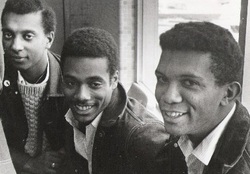|
Charles Cobb
Field Secretary, Student Nonviolent Co-ordination Committee, Mississippi ( 1962-67), Distinguished journalist, Senior Writer and Diplomatic Correspondent for AllAfrica.com (current) Email Interview December 12, 2012 |
1) What role did the non violent tactics used by the Student Nonviolent Coordinating Committee ( SNCC ) play in the fight for civil rights in America in the 1960's?
"The principled militant dignity of nonviolent resistance generated much attention that helped win nationwide sympathy for extending civil rights to black people, and enhanced the prospect of enduring the reprisal and terrorism that inevitably followed challenges to white supremacist order. In a significant portion of the southern black community nonviolent resistance tapped deeply into a vein of righteousness rooted in the church, and helped provide moral guidance in a political struggle where hate and anger could easily overwhelm and blind. "
2) Can you draw any parallel between the grassroots organizing by the youth in the SNCC in securing "One Vote, One Voice" for all Americans, to other movements in the world since then?
"Although most people think of the movement as one of mass protest in public spaces led by charismatic leaders. The much older tradition in that of community organizing. Quiet work in southern back country that was often punctuated by anti-black violence. most successful movements in the world movements built around grassroots organizing. South Africa, particularly the youth-led “black consciousness“ movement that revived the freedom struggle there in the early 1970s comes to mind. Most of the African nations gained their independence through grassroots organized struggle rather than protest marches."
3) Was the Voting Rights Act of 1965 a turning point in US history?
"The voting rights act and the struggle to gain it in the South was indeed a turning point. There is a direct connection between that effort and the election of Barack Obama, and in fact the effort of Hiliary Clinton to gain the presidency. That act empowered more than black people. The country is in fact more democratic (small d.)"
